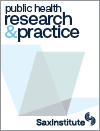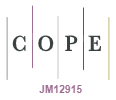PU24029Development of a digital dashboard to address population-level obesity using electronic medical record data
Obesity rates in Australia are rising. New approaches are needed that help target obesity interventions with greater precision. We developed a digital dashboard that can use data from electronic medical records to monitor obesity rates over time, place, and area in a large state in Australia. After further validation, the dashboard could be used by public health practitioners to plan obesity interventions, target areas with higher burden and risk, and monitor trends over time.
PU24029 Abstract | PU24029 Full Text | PU24029PDF (1.3 MB) | PU24029Supplementary Material (1.5 MB) Open Access Article





